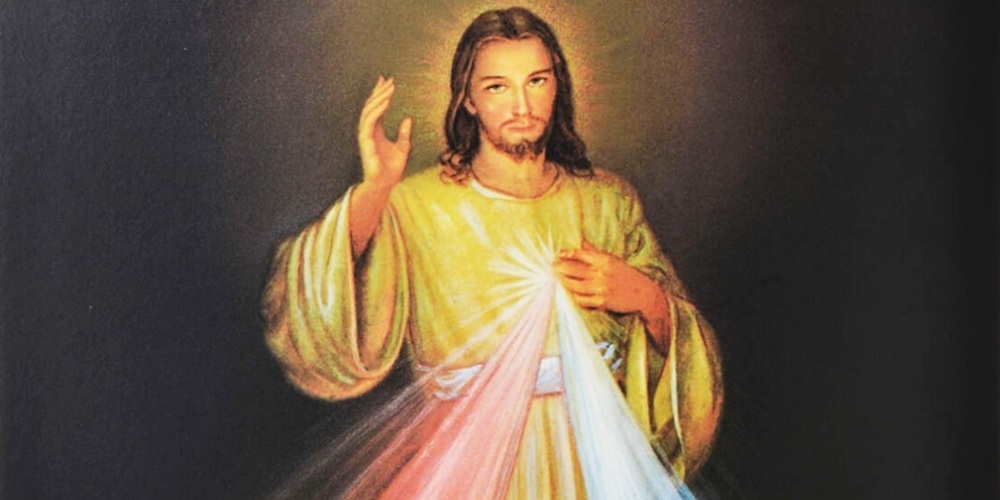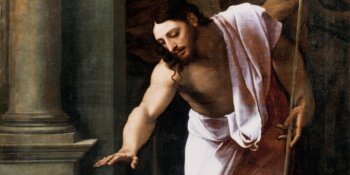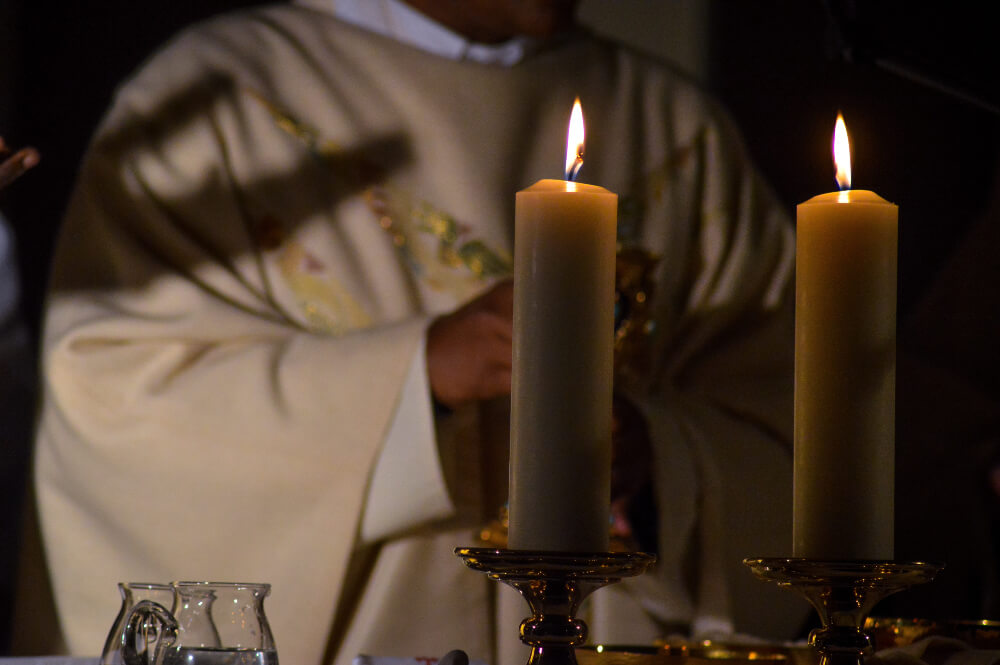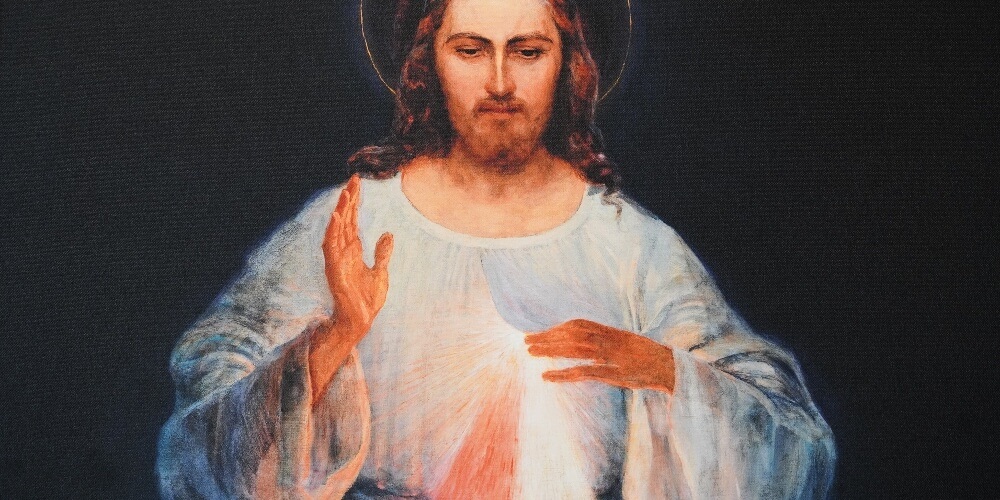
It might seem incredibly obvious to state that “mercy is for sinners,” yet we can sometimes forget this foundational truth.
Unless we actually spend time dwelling on this reality, we will utterly fail to understand—and live out—the message of Divine Mercy.
Here are five reasons why mercy is for sinners—and some guidance on what this concept really means.
1. Christ Came For Sinners
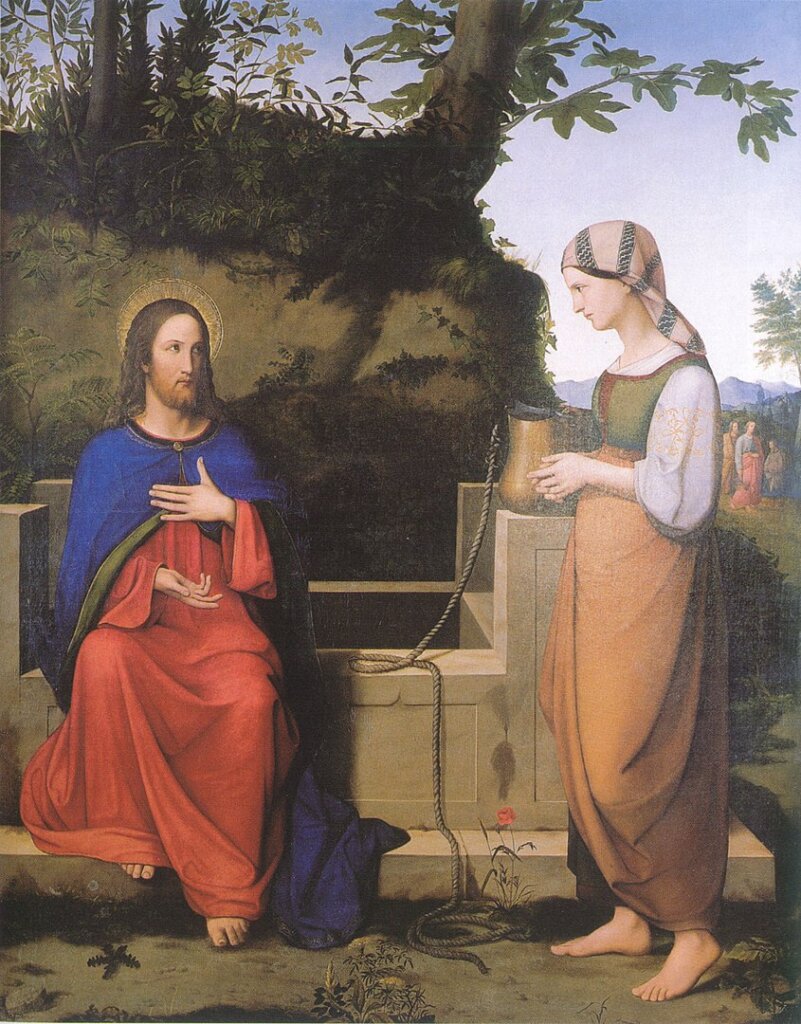
…as often as you hear the clock strike the third hour, immerse yourself completely in My mercy, adoring and glorifying it; invoke its omnipotence for the whole world, and particularly for poor sinners; for at that moment mercy was opened wide for every soul.
Diary of St. Maria Faustina Kowalska
First and foremost, we need to remind ourselves why Christ came.
He did not come to award those who were already doing His will, but to save the sinner:
“It is not the healthy who need a doctor, but the sick. I have not come to call the righteous, but sinners to repentance.”
Luke 5:31-32
The Divine Mercy message reaffirms this call:
My Heart overflows with great mercy for souls, and especially for poor sinners. If only they could understand that I am the best of Fathers to them and that it is for them that the Blood and Water flowed from My Heart as from a fount overflowing with mercy. For them I dwell in the tabernacle as King of Mercy. I desire to bestow My graces upon souls, but they do not want to accept them.
Diary of St. Maria Faustina Kowalska §367
2. The Greater the Sin, the Greater the Mercy

Jesus’ death was sufficient sacrifice for all sin.
No matter how great a sin committed, no matter how hardened the sinner, Christ’s grace is sufficient for redemption and He desires to bring even greater mercy to those who have committed great sins.
And your heart is My constant dwelling place, despite the misery that you are. I unite Myself with you, take away your misery and give you My mercy. I perform works of mercy in every soul. The greater the sinner, the greater the right he has to My mercy. My mercy is confirmed in every work of My hands. He who trusts in My mercy will not perish, for all his affairs are Mine, and his enemies will be shattered at the base of My footstool.
Diary of St. Maria Faustina Kowalska §723
3. Even the Most Hardened Sinner Has a “Right” to Christ’s Mercy
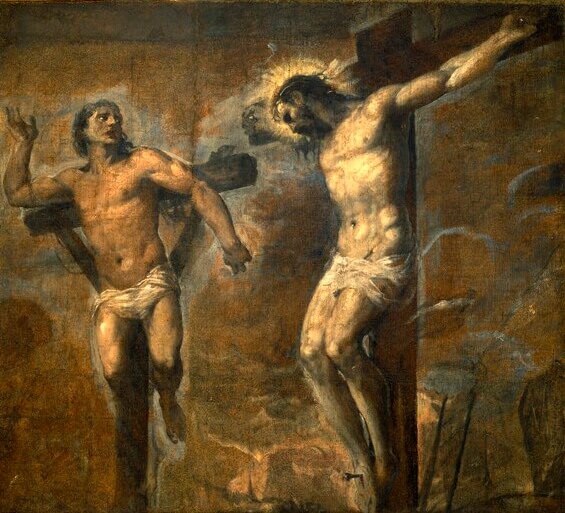
Jesus died for all sinners, without exception. Although not everyone accepts His mercy, He wants to give greater mercy to greater sinners.
Because Christ died for us, and because it is right for us to accept that gift, it follows that the worse the sinner, the greater right he has to the mercy of Christ.
My daughter, My pleasure and delight, nothing will stop me from granting you graces. Your misery does not hinder my mercy. My daughter, write that the greater the misery of a soul, the greater its right to My mercy; [urge] all souls to trust in the unfathomable abyss of My mercy, because I want to save them all. On the cross, the fountain of My mercy was opened wide by the lance for all souls – no one have I excluded!
Diary of St. Maria Faustina Kowalska §1182
Jesus wants the hardened evildoer to repent, and He will rejoice when they lay claim to the mercy that He offers them.
Just so, I tell you, there will be more joy in heaven over one sinner who repents than over ninety-nine righteous persons who need no repentance.
Luke 15:7
4. We Too Must Be Merciful, Lest We Close Ourselves Off From Christ
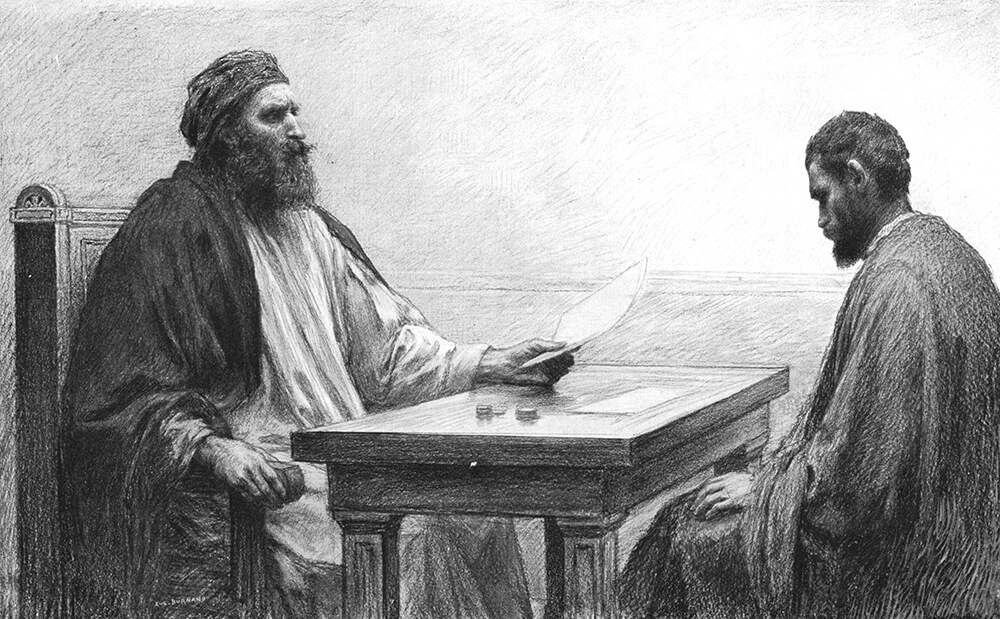
Mercy is not meant to be received and then kept to oneself.
Like Faustina, we must accept the mercy of Christ and then share it with the world. We must act with mercy towards others so that we ourselves can receive it most fully and so that we can participate as much as possible in God’s salvific work on earth.
As Christ taught us to pray: “Forgive us our trespasses as we forgive those who trespass against us.”
Our reception of mercy is contingent upon our being merciful; to act with mercy and charity towards others is a necessary part of living out the Divine Mercy message.
Nor can we let the genuine repentance of other sinners become a stumbling block for our own peace, as if God’s love is finite, and there is a limited amount to go around.
As Jesus taught us in the parable of the vineyard workers: even those who were called late in the evening received a full day’s wages from the master. Those who came to work in the morning were not cheated in receiving their due; they received a good wage in payment for their diligent work.
If we are envious of others or consider ourselves somehow “more” worthy of God’s love, then we set ourselves against Him, rather than with Him.
5. Only Despair Sets us at Odds with Christ’s Mercy
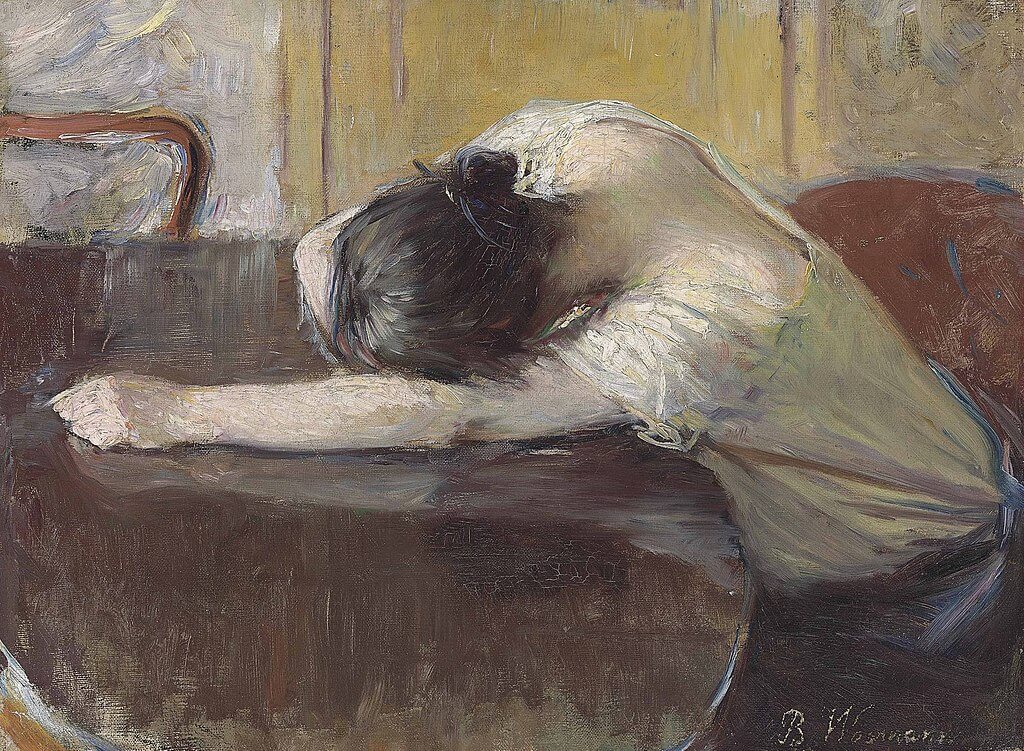
Lastly, we must never despair for our own salvation. Doing so is an act of distrust against God.
Though our sins be like scarlet, Jesus wants to wash us so that we are white as snow; if we do not believe Him, then that is an act against Christ.
We need not fear Jesus, no matter what we’ve done.
Let the sinner not be afraid to approach Me. The flames of mercy are burning Me—clamoring to be spent; I want to pour them out upon these souls…
Distrust on the part of souls is tearing at My insides. The distrust of a chosen soul causes me even greater pain; despite My inexhaustible love for them they do not trust Me. Even My death is not enough for them. Woe to the soul that abuses these [gifts].
Diary of St. Maria Faustina Kowalska §50
Meditation on The Prodigal Son
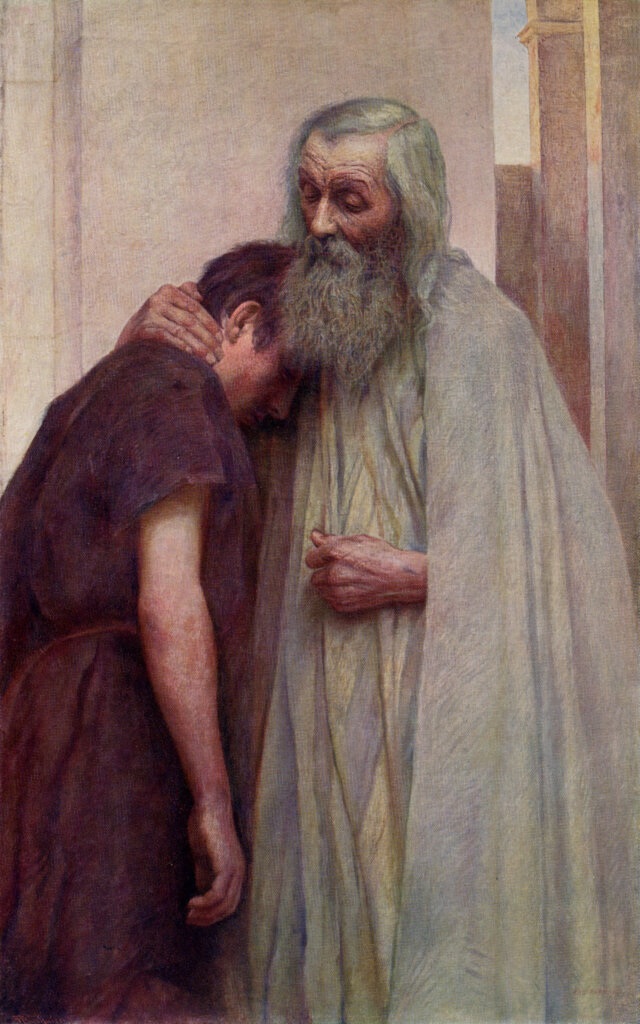
In the video reflection below, Fr. Geraci will lead us through a reading and meditation on the parable of the prodigal son from the fifteenth chapter of Luke.
In order to aid you in that meditation, we’ve included the full text of that parable below.
“There was a man who had two sons. The younger of them said to his father, ‘Father, give me the share of the property that will belong to me.’ So he divided his property between them. A few days later the younger son gathered all he had and traveled to a distant country, and there he squandered his property in dissolute living. When he had spent everything, a severe famine took place throughout that country, and he began to be in need. So he went and hired himself out to one of the citizens of that country, who sent him to his fields to feed the pigs. He would gladly have filled himself with the pods that the pigs were eating; and no one gave him anything. But when he came to himself he said, ‘How many of my father’s hired hands have bread enough and to spare, but here I am dying of hunger! I will get up and go to my father, and I will say to him, “Father, I have sinned against heaven and before you; I am no longer worthy to be called your son; treat me like one of your hired hands.”’
So he set off and went to his father. But while he was still far off, his father saw him and was filled with compassion; he ran and put his arms around him and kissed him. Then the son said to him, ‘Father, I have sinned against heaven and before you; I am no longer worthy to be called your son.’ But the father said to his slaves, ‘Quickly, bring out a robe—the best one—and put it on him; put a ring on his finger and sandals on his feet. And get the fatted calf and kill it, and let us eat and celebrate; for this son of mine was dead and is alive again; he was lost and is found!’ And they began to celebrate.
“Now his elder son was in the field; and when he came and approached the house, he heard music and dancing. He called one of the slaves and asked what was going on. He replied, ‘Your brother has come, and your father has killed the fatted calf, because he has got him back safe and sound.’ Then he became angry and refused to go in. His father came out and began to plead with him. But he answered his father, ‘Listen! For all these years I have been working like a slave for you, and I have never disobeyed your command; yet you have never given me even a young goat so that I might celebrate with my friends. But when this son of yours came back, who has devoured your property with prostitutes, you killed the fatted calf for him!’ Then the father said to him, ‘Son, you are always with me, and all that is mine is yours. But we had to celebrate and rejoice, because this brother of yours was dead and has come to life; he was lost and has been found.’”
Luke 15:11-32
This is an excerpt from our acclaimed series Divine Mercy. To learn more, participate, and discover how this go-at-your-own-pace program can transform your life, click here.
All excerpts of the Diary used by permission of the Marian Fathers of the Immaculate Conception of the Blessed Virgin Mary.

